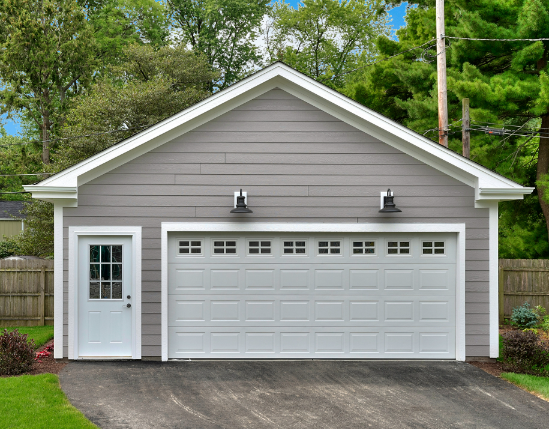Five Common Residential Garage Door Repairs

Most homeowners don’t often think of their garage door. However, once you experience the garage door malfunctioning, you realize just how vital the dependability of this part of your home is. Many garage door issues happen from wear and tear and lack of maintenance. Here are the five most common residential garage door repairs that our company conducts.
Malfunctioning Sensors
Garage doors have safety sensors installed about 5 inches above the garage floor on both sides of the garage door. An invisible beam between the two detects people, pets, or objects in the door’s path. They are designed to keep the door from closing when obstructions are recognized. Therefore, they help keep the home safe and sound. However, the door might become stuck in the open position if the sensors are dirty or misaligned. The first step is to try cleaning and realigning the sensors. If this doesn’t work, a garage door technician must replace them.
Damaged Panels
Garage door panels are the rectangular segments that make up the garage door. Impact, storm damage, moisture infiltration, or even simple daily wear and tear can cause the panels to lose structural integrity. Regular maintenance, including cleaning, is the best method to prevent damage to your garage door panels. Some garage door panel material is more durable than others. For example, steel doors stand up better to hailstorms and other harsh weather when compared with aluminum or wood panels.
Misaligned Tracks
The horizontal tracks are what guide the garage door up and down smoothly. Sometimes, the tracks shift out of alignment due to loose mounting brackets. When they become misaligned, the door will get stuck or operate inefficiently. You may notice uneven, jerky movements of the doors, more noise than usual, or even a visible gap between the door and the tracks. Addressing track misalignment promptly is vital because it can impact your garage door’s smooth operation and safety.
Broken Springs
Garage door springs counterbalance the door’s weight and create a safe and smooth mechanism for the door to lift and lower. The most common reason for garage door spring failure is wear and tear. After about 10,000 cycles, the springs should be replaced. Moreover, we see rust causing garage door spring failure due to increasing the amount of friction on the coils.
While broken garage springs are a common problem, they should always be repaired by a professional technician. These springs are under extremely high tension. Therefore, they are dangerous to handle. If not done correctly, these repairs can result in serious injury.
Worn Rollers
Overhead door rollers are small wheels attached to the sides of a garage door that allow for the door’s ease of movement up and down. They should be lubricated about twice a year to prevent a noisy door. Normal wear and tear can sometimes cause them to crack, chip, or wear out. In this case, a technician must replace them. Replacing garage door rollers entails a technician first removing the brackets that secure them. Next, they’ll slide out the worn-out rollers and install new ones in their place.
Homeowners can do some minor garage door repairs DIY style, such as cleaning or realigning the safety sensors. However, even common residential garage door repairs are complicated and require specialized knowledge and the proper tools. For this reason, you should leave most garage door services to professional garage door technicians.
If you’d like to reduce your chances of garage door malfunctions, contact us today to schedule your residential garage door maintenance.
